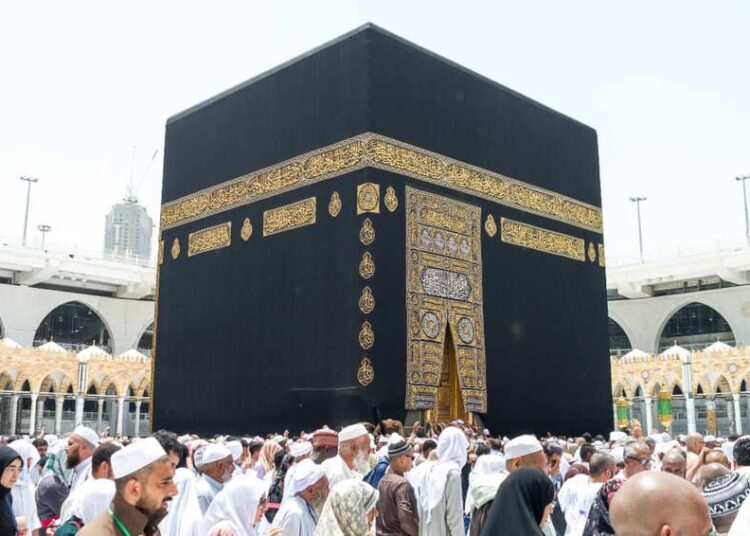Millions of Muslims around the world are celebrating Eid ul Fitr today after fasting the month of Ramadan. Fasting during the month is one of five pillars of Islam. The rest being the declaration of faith, payment of Zakat, performing the Hajj at least once in a lifetime and the five daily prayers. Eid ul Fitr is also one of only two Eid festivals in Islam. It is celebrated at the end of Ramadan while Eid Al Adha is celebrated at the end of the Hajj season. This year, the celebration comes in the middle of a transition period after which a new government will be replacing the Muhammadu Buhari led administration. It also comes after a very contentious presidential election that has left many citizens feeling disillusion with the entire democratic process. But maybe the most notable feature of this year’s celebration is the harsh economic reality with rising food prices and persistent petrol queues. But before the election, businesses collapse and tonnes of perishable farm products went to waste because of the redesign of the naira note and the withdrawal of more than N2 trillion from circulation.
Many businesses are yet to recover. It is not unexpected that many families will not be able to travel to their home towns because of the difficult times or be able to afford celebrating Sallah in the lavish manner they are accustomed to. But Ramadan has meant restraint and enduring without food and drink for long periods of time. There is no better time to remind ourselves that Rizq (provision) comes from the creator, not just for individuals, but entire nations. And patience under such circumstances is a must for members of the Muslim Ummah. There are countless issues in our daily lives, not just the electoral process, inflation or governance in general that need improvement, but there are countless more to be grateful for. Hopefully, many Nigerians would have been reminded of those blessings in the last month.
We see the lessons from the month-long fasting and the celebration of Eid as being relevant to help foster peace and unity among the Muslim Ummah and the larger Nigerian society. The month of Ramadan is known to be the best of months because it was the month the Quran was revealed in. And the entire essence of fasting the month is to make us more conscious of our creator, draw us closer to Him, acquire patience and good manners, and also develop unity among the Ummah. These qualities that are needed in our society to us get through trying times.
The fasting month ends with reaching out to the less privileged in the society and is therefore not complete without paying the Zakat ul Fitr, which is given to the poor in the form of grains or staple food and according to scholars can be paid as early as two or three days before Eid, on the night Eid or just before the Eid prayer. Paying Zakat ul Fitr is mandatory on every Muslim, whether male or female, young or old and is usually paid by the head of a household. Giving the Zakat is a form of gratitude for the blessings of Allah upon the servant upon the completion of Ramadan. Abdullah Ibn Masoud, the companion of the Messenger of Allah said, Imaan (faith) is of two halves; one is patience and the other half is gratitude. Also, in a Hadith, Abu Huaraira reported; The Prophet, peace and blessings be upon him said, “Whoever does not thank the people has not thanked Allah.” Based on Islamic tradition, gratitude alone is one quality that can transform lives and will lead to abundance, prosperity, peace, and success in one’s life. Gratitude also nurtures happiness and wellbeing and it is a way of seeking the pleasure of Allah.
The reward for performing the Hajj, pilgrimage to the holy land is well known in Islam. It wipes away all past sins. It also the belief of scholars that during hardship, calamities or difficult times, combining patients and gratitude earns the believer a high level of rewarder with all past sins being wiped away. And if Ramadan has taught anything, it is that we can survive on less. We are need to show more gratitude for the country we have in spite of the many challenges. The reality is that things could be worse. We do not need to look very far to find countries facing famine or are in a state of civil war. And in spite the daily reports of crimes around the country, a majority of Nigerian are living in relative safety. That is something to be thankful for.





